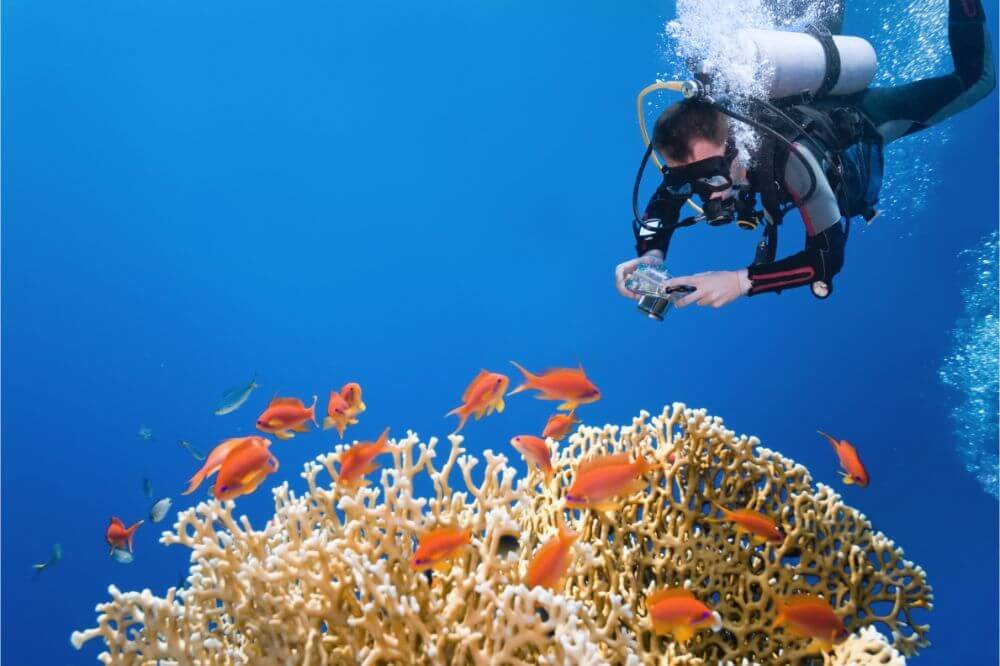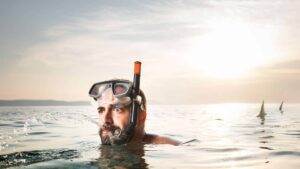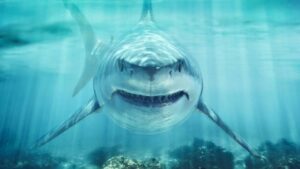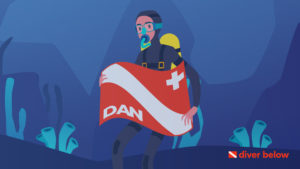Oceans cover most of Earth’s surface and are home to unique species and ecosystems that can be found nowhere else.
So it’s no wonder that so much scientific research takes place in and around the ocean.
But what is scientific diving, and what is a scientific scuba diving certification?
Contents
What is Scientific Diving?
Scientific diving is diving done for the purpose of scientific research, exploration, and experimentation.
Most scientific divers are scientists first, who learn how to dive to perform fieldwork and research.
Some of the fields and institutions that use scientific diving include:
- Marine biology
- Fisheries science
- Marine chemistry
- Hydrology
- Oceanography
- Limnology
- Underwater archaeology
- Marine ecology
- Marine geology
- Environmental protection agencies
- Universities with research departments
Because there is such a wide range of underwater scientific activity, scientific divers may free dive, scuba, or use remotely operated underwater vehicles to conduct research.
Scientific Diving Standards
Like all science, scientific diving has standards. Standards help ensure that scientific scuba teams work effectively together, operate safely for everyone, and maintain the scientific integrity of their work.
The American Academy of Underwater Science maintains standards that ensure reciprocity and collaboration between scientific divers and establish shared expectations between scientific dive teams and researchers.
Who Needs a Scientific Diving Certification?
Scientific diving is usually considered a specific application of occupational diving, and requirements and regulations vary widely in different parts of the world.
In the US, scientific diving is exempt from the requirements of Federal Occupational and Health regulations, provided that other certification and safety protections are in place, and workers aren’t placed at unnecessary risk.
Because scientific diving is usually considered occupational, the employer, not the diver, is responsible for determining whether certification is required or recommended and which standards and regulations apply.
Naturally, different standards apply based on different diving conditions and tasks; for example, diving under ice, diving in zero visibility or polluted waters, capturing samples or specimens, or taking complex measurements.
In addition, scientific divers are typically members of a team, so some team members will have additional coordination and oversight responsibilities.
However, divers can also pursue independent scientific diving certification if they want more training or expertise.
In addition, professional scuba instruction schools often offer scientific diving certifications, and people can pursue their interest in scientific diving without being employed in the field.
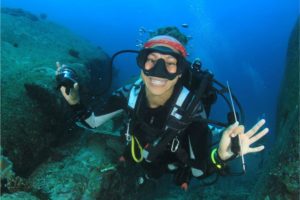
How to Get a Scientific Diving Certification
The first scientific diving certification in the US was developed by the Scripps Institution of Oceanography in 1954.
Many scientific diving programs continue to be based on aspects of this program.
While there is a wide range of certification regulations and programs, scientific divers are expected to be:
- Qualified scientists or technicians within their field or people pursuing scientific training
- Medically fit and capable of diving safely
Scientific dive training usually closely resembles commercial diver training, but it specifically prohibits underwater construction and similar commercial tasks. Scientific diving certification includes skills like:
- The physics and physiology of diving
- Correct gas calculations and use of decompression tables
- Selection, use, and maintenance of scuba equipment and dive computers
- Basic dive skills
- Tethered dive skills
- Dive planning
- Codes of practice when working in a scientific dive team
- Diving first aid, CPR, and oxygen administratio
- Dive emergency procedures
- Scuba rescue techniques
Scientific divers may also need additional training and certifications.
For example, they may be required to have credentials in operating a boat or other vehicle, handling hazardous materials, or be certified for skin diving, aquarium diving, or other special diving scenarios.
Maintaining Scientific Diving Certification
Again, requirements can vary worldwide, but scuba certifications usually need to be maintained once earned, and scientific diving is the same.
A scientific diver must log a minimum of 12 dives every 12 months to maintain certification and may need to perform at least one nitrox dive per year.
While some of these dives can be recreational, at least one of the 12 dives must be near that diver’s maximum depth.
Scientific divers must also maintain good physical health with regular medical evaluations.
In addition, they may be required to maintain CPR and/or AED certification, first aid certification, or other related certifications.
Wrapping Up
There are vast areas of our underwater world that remain unexplored and poorly understood.
We still have so much to learn about the underwater environment and the creatures who live there and how aquatic environments are connected to terrestrial environments in our complex ecosystems.
Scientific divers use their scientific training and expertise to conduct research and exploration underwater.
